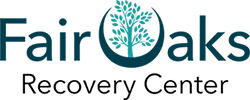In 2023, CNN reported on “the loneliness epidemic,” citing worldwide research that revealed one in four adults, usually between the ages of 19 and 45, feel “very or fairly lonely.” If you’re feeling lonely in sobriety, there are many ways to remedy this, from rehab alumni connections to mutual aid support groups and more. Let’s take a closer look.
The Difference Between Alone and Lonely
Appreciating deliberate alone time is actually a valuable asset. In an article for Psychology Today, psychiatrist Abigail Brenner stated that “being alone allows you to drop your ‘social guard,’ thus giving you the freedom to be introspective, to think for yourself. You may be able to make better choices and decisions about who you are and what you want without outside influence.”
Additionally, if you’re in the first year of sobriety, you’ve probably been advised to not enter into a romantic relationship. There are many reasons for this, including learning how to establish healthy boundaries, using your alone time to better understand feelings and thoughts, and focusing on proper self-care techniques.
Spending quality time alone also clears the way to pursue your unique hobbies and interests. Once you identify these, you’ll look forward to these moments as methods to manage stress, recharge, and create diversity in your life.
So what does it mean to be lonely? The American Psychological Association (APA) defines it as “affective and cognitive discomfort or uneasiness from being or perceiving oneself to be alone or otherwise solitary.” Here are some other key points from the APA, which we provide verbatim:
- Social psychology emphasizes the emotional distress that results when inherent needs for intimacy and companionship are not met.
- Cognitive psychology emphasizes the unpleasant and unsettling experience that results from a perceived discrepancy (i.e., deficiency in quantity or quality) between an individual’s desired and actual social relationships.
- Psychologists from the existential or humanistic perspectives may see loneliness as an inevitable, painful aspect of the human condition that nevertheless may contribute to increased self-awareness and renewal.
One way to determine if you’re lonely in sobriety is to use the UCLA Loneliness Scale. Generally, possible loneliness scores range from 20 to 80, with the total average national loneliness score in America reaching 44.
Some studies indicate that “feelings of loneliness is a cognitive variable related to worse physical and mental health and has direct relationship with depression and alcohol abuse, low self-esteem, low self-confidence, assertiveness, shyness disinhibited, high risk behaviors, anxiety, and tension.”
What’s worse, it’s often a cycle that’s hard to break. If you feel lonely, you might be more prone to engage in negative behaviors, even if you know they’re harmful. And once this happens, some people become even more isolated, unable to socialize healthfully or engage in activities they enjoy.
Here’s What May Help if You’re Lonely in Sobriety
Overcoming loneliness in sobriety can be challenging, but it’s definitely achievable with the right strategies and support. Here are some ideas.
- Strengthen your sober support network. One of the reasons why rehab alumni programs are so helpful is you’re able to connect with others who understand the recovery journey, but this is just one of many options to create a sense of belonging and companionship. Attend support group meetings, join online forums or social media groups, and participate in sober activities and events, too.
- Stay engaged through sober living resources. Keep up with recovery literature and podcasts and attend workshops and seminars related to sobriety. Continuously educating yourself about addiction and recovery reinforces your commitment and helps you find people with a shared mindset.
- Volunteer. Helping others can give you a sense of purpose and fulfillment. Look for ways to give back with organizations that align with your interests. Volunteering also introduces you to new people and helps you build meaningful connections.
- Explore hobbies and interests. How do you find “your people”? Engage in activities that you enjoy and that make you feel fulfilled. Whether it’s painting, hiking, cooking, or playing music, pursuing hobbies provides a sense of accomplishment and connection.
- Stay active. Some studies suggest that regular exercise helps improve mood and reduce feelings of loneliness. Find physical activities that you enjoy, such as walking, cycling, or yoga, and incorporate them into your routine. Consider joining a fitness class or sports team to meet new people while staying healthy.
- Practice mindfulness and self-compassion. Loneliness can sometimes be accompanied by negative self-talk and feelings of inadequacy. Use mindfulness and self-compassion techniques to cultivate a greater sense of acceptance and kindness toward yourself.
- Attend different social events. Even the most introverted among us can enjoy unique gatherings, even if you feel anxious or unsure. Start with small, low-pressure events and gradually work your way up to larger gatherings. Remember that it’s okay to take breaks and step outside for some fresh air if you need to.
- Reach out to loved ones. Stay connected with friends and family members who support your sobriety. Schedule regular phone calls, video chats, or meetups to catch up and maintain your relationships. Don’t hesitate to ask for help or support when you need it.
- Seek professional help. If feelings of loneliness persist or become overwhelming, consider speaking with a mental health professional who can provide guidance and support as you navigate your emotions and develop coping strategies.
Find the Care You Deserve at Fair Oaks
Addiction is often an isolating experience. Fair Oaks Recovery Center in Sacramento, California, is a licensed Chemical Dependency Recovery Hospital, a status granted by the California Department of Public Health to addiction rehabilitation and dual diagnosis treatment facilities that provide high-level acuity care. Our board-certified medical team designs a custom aftercare plan to help you live fully in sobriety. Through our vibrant alumni program and consistent follow-up care, you can trust in community support throughout your recovery.



